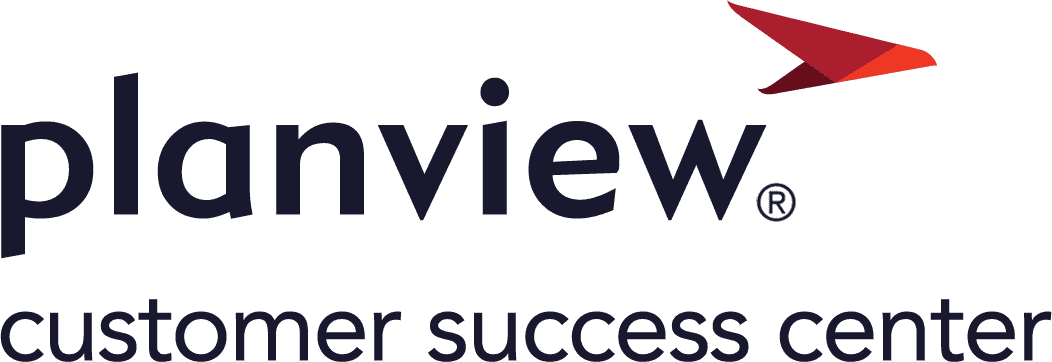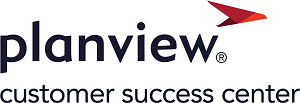Portfolios OKRs
Portfolios OKRs adoption pathway
| 1. Get started | 2. Design and set up | 3. Capability usage | 4. Reports and outputs |
|
Audience |
Planview administrator |
|
Objective |
Successfully set up OKRs in Planview Portfolios. |
Complete prerequisites
| Step | Role | Description |
|---|---|---|
|
Ensure you are using the right Planview Portfolios release |
Planview administrator |
To use Planview Admin with Planview Portfolios, ensure you are on the October 2022 release or later.
|
|
Planview administrator
|
Contact Planview Customer Care to request Planview Admin for your organization. Include the email address for the Planview Admin administrator at your organization – they can then add more administrators after Planview Admin is set up.
Once Customer Care enables Planview Admin, sign in with your Planview Admin administrator account. |
|
|
Planview administrator
|
Ensure you are signed in to both Planview Admin and the Planview product you want to add with the same email address.
Select Planview Portfolios as the product for which you want to add a product environment.
Add the URL of the specific Planview product environment you want to add, then connect. Enter your Planview product login on the screen that appears to confirm that you are an administrator.
Planview Admin will automatically import the users for the product environment and add the tile for the product in the Our Products section. |
|
|
|
Planview administrator
|
For each product environment you add, audit the imported user list and reconcile any unmapped users.
|
|
Planview administrator
|
Enable SSO for Planview Admin.
If your organization already has an SSO provider, configure your provider to work with Planview Admin.
|
|
|
Configure OKR levels |
Planview administrator
|
Define, add, or modify OKR levels, which allow you to track connected OKRs across organizational structures. OKRs have an enterprise or corporate level at the top and team-level OKRs at the bottom with various levels in between. Having multi-leveled OKRs allows for bidirectional goal alignment. |
|
Define custom attributes |
Planview administrator
|
Add and manage custom attributes for OKRs. You define the attribute type (such as a text box or multiselect list), the possible values if the attribute is a list, tooltip text, whether the attribute is required or optional, and whether the attribute is enabled. Custom attributes can then help you capture and track more specific data that matches your organization's needs. |
Enable functionality for OKRs in Planview Portfolios
| Step | Role | Description |
|---|---|---|
|
Enable the Enable Objectives and Key Results global option
|
Planview administrator |
To enable the Enable Objectives and Key Results global option, go to: Administration >> System Configuration >> Global Options >> Additional Functionality Then check the box next to “Enable Objectives and Key Results”.
|
|
Activate OKR functionality for strategies
|
Planview administrator
|
To enable OKRs for strategy in Planview Portfolios, go to:
Administration >> Menus and Ribbons >> Menu Actions >> Strategies Then check the box next to “Enable Objectives and Key Results”.
The action menu option now appears on screens such as the strategy Portfolio View screen. For more information about configuring menu action options, such as setting a required feature, see Enabling or Disabling Action Options. |
|
Activate OKR functionality for work
|
Planview administrator
|
To enable OKRs for work items in Planview Portfolios, go to:
Administration >> Menus and Ribbons >> Menu Actions >> Work
Then check the box next to “Enable Objectives and Key Results”. The option now appears on screens such as the work Portfolio View screen. For more information about configuring menu action options, such as setting a required feature, see Enabling or Disabling Action Options. |
Set up Planview.Me for OKRs
Planview.Me is a visually immersive, actionable, and personalized user experience. The Planview.Me experience combines the power of a customized dashboard with the ability to take action, allowing your users to quickly investigate, respond, and react.
Here is the related widget you can configure for OKRs:
| Widget name | Description |
| OKR progress |
The OKR Progress widget displays an interactive line graph of the progress of objectives and key results over a fixed timeframe. |

